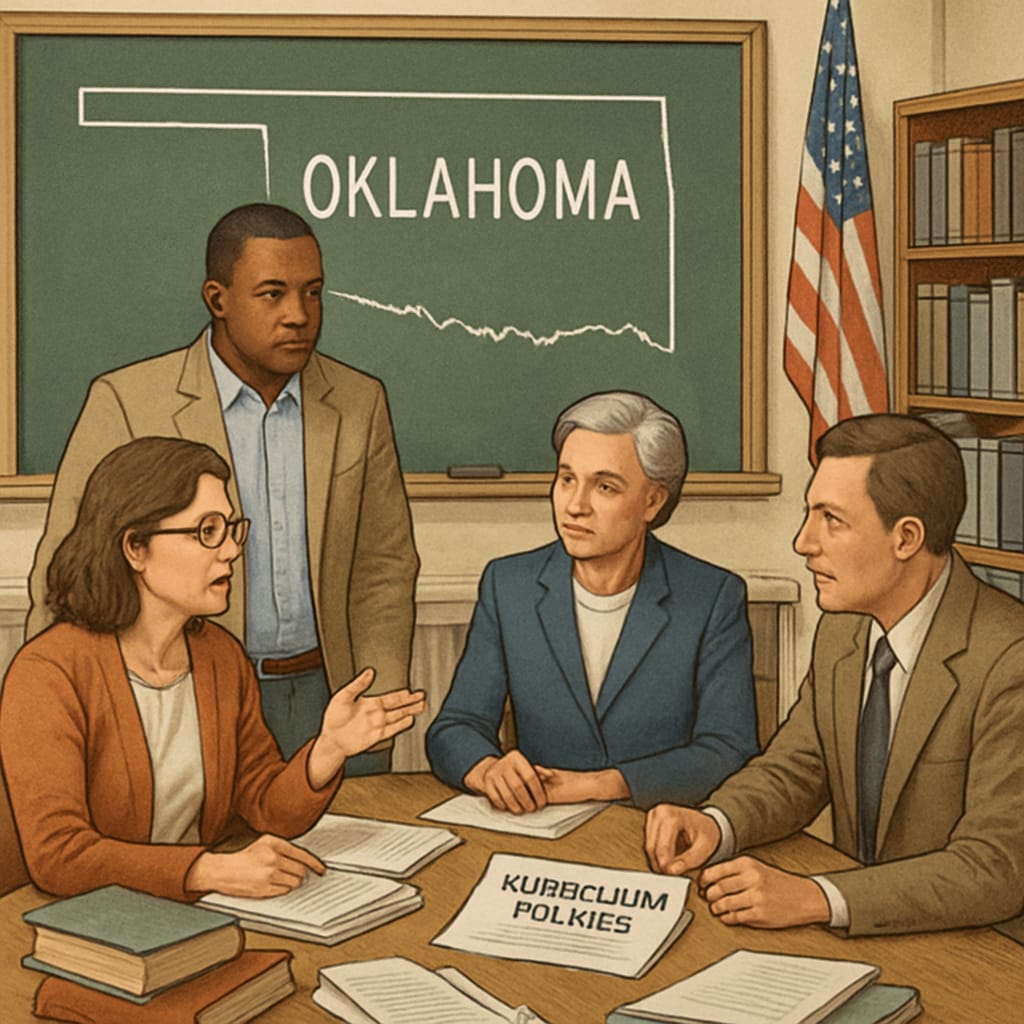Recent changes in Oklahoma’s teacher application process have sparked national conversation. The state now requires out-of-state teacher applicants, particularly from New York and California, to complete a 50-question political stance test before consideration. This unprecedented policy has raised concerns about the politicization of education and its impact on the professional integrity of K12 teaching environments. By examining the motivations behind this policy, its potential effects, and the broader implications for education, we can better understand the challenges it poses.
The Motivation Behind Oklahoma’s Political Stance Test
Oklahoma’s new policy appears to stem from broader ideological divides that have taken root in the U.S. education system. State officials argue that the test ensures teachers align with the values and principles upheld by Oklahoma’s communities. However, critics view this as an attempt to exclude educators with differing political beliefs, particularly those from states with more liberal policies like New York and California.
Proponents claim that this measure protects students from potential “indoctrination” and ensures a curriculum free of ideological bias. Yet, at its core, the policy raises critical questions: Should a teacher’s political views influence their hiring, and where does one draw the line between community values and professional expertise?

Impacts on Teacher Recruitment and Retention
Implementing a political stance test risks creating a hostile environment for educators, particularly for those seeking to relocate. The policy may deter qualified teachers from applying, exacerbating the teacher shortage already affecting many states, including Oklahoma. According to a report on teacher shortages, states struggling to fill positions often rely on out-of-state applicants to meet staffing needs.
Moreover, the test could undermine the professionalism of teaching by prioritizing political alignment over educational expertise. Teachers, who are meant to foster critical thinking and inclusivity, may feel pressured to conform to certain ideologies, limiting their ability to create a diverse and open classroom environment.
Education and Politics: A Dangerous Combination
Education systems should prioritize neutrality and focus on academic excellence, yet policies like Oklahoma’s political stance test blur the lines between education and politics. The implications of such a policy extend beyond the hiring process, potentially influencing curriculum design and classroom discussions. For example, teachers might avoid controversial topics altogether to evade scrutiny, depriving students of valuable opportunities to engage in critical thinking.
This blending of education and politics has been widely debated. In a historical analysis of education systems, experts emphasize that politicizing schools can lead to long-term damage by undermining trust in public education and alienating diverse communities. Policies like Oklahoma’s risk creating echo chambers, where only certain viewpoints are represented, rather than promoting a balanced and inclusive approach to learning.

What Lies Ahead for K12 Education in Oklahoma?
As this policy continues to draw criticism, its long-term impact on Oklahoma’s education system remains uncertain. Key concerns include:
- Potential lawsuits challenging the legality of political stance testing in public employment.
- Increased polarization within the teaching community, making collaboration difficult.
- Negative perceptions of Oklahoma’s education system on a national scale.
To address these challenges, Oklahoma may need to reconsider its approach. Balancing community values with educational professionalism is crucial to maintaining a high-quality and inclusive K12 environment. Policies that prioritize expertise over ideology could help attract and retain the best educators, ensuring that students benefit from diverse perspectives and critical thinking opportunities.
In conclusion, Oklahoma’s political stance test for teacher applicants highlights the risks of intertwining education and politics. While the policy may reflect certain community concerns, its broader implications for teacher recruitment, curriculum neutrality, and public trust in education warrant careful scrutiny. As other states watch closely, the need for a nuanced and balanced approach to education policies has never been greater.
Readability guidance: This article uses concise paragraphs, clear transitions, and a balance of active and passive voice to ensure readability. Images with relevant descriptions are included for visual context.


